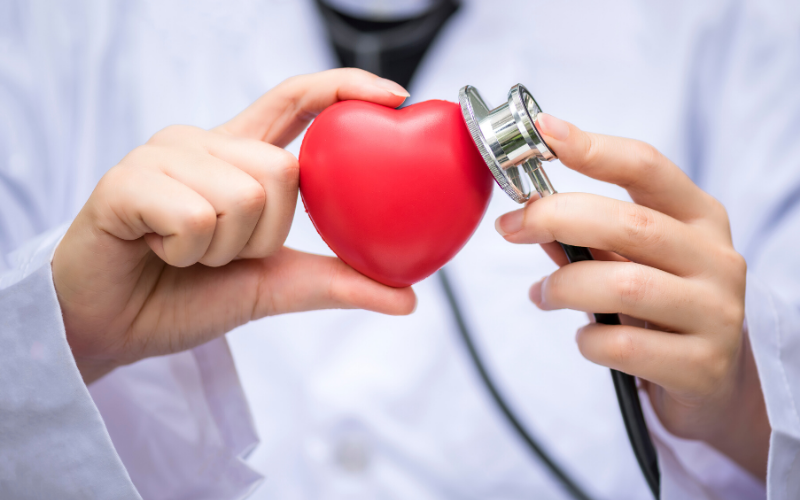We all are in the middle of a pandemic and because of this almost all of us are today confined to our homes.
Now, since we all are confined to your homes for an extended period of time, change in lifestyle in lockdown isolated many people, leading to a lack of exercise, which in turn caused more mental stress or anxiety, and even lower immunity. Loss of group activity opportunities also removed the motivation for many individuals, as well as a loss of required resources. Exercise is essential for heart health and psychological well being too.
With Covid-19, and uncertainty around it is very important to control the stress which increases inflammation, raises your cholesterol and blood sugar, increases blood pressure and even makes your blood more likely to clot.
Having elevated cholesterol during the teens or early twenties increases a person’s risk of having a heart attack, stroke or another cardiovascular event during middle age. That is the finding a new landmark study led by researchers at the University of Maryland School of Medicine (UMSOM).
The study, entitled “Time Course of LDL Cholesterol Exposure and Cardiovascular Disease Event Risk”, was published today in the Journal of the American College of Cardiology and relied on data from the Coronary Artery Risk Development in Young Adults Study (CARDIA).
Ahoy! We’ve got tips to help you protect yer he-ARRRHt health, mateys. https://t.co/Eo647Wh9z0 #TalkLikeAPirateDay pic.twitter.com/PFjkWk5BeH
— CDC Division for Heart Disease & Stroke Prevention (@CDCHeart_Stroke) September 19, 2020
“We found having an elevated LDL cholesterol level at a young age raises the risk of developing heart disease, and the elevated risk persists even in those who were able to later lower their LDL cholesterol levels,” said study leader Michael Domanski, MD, a Professor of Medicine at UMSOM.
For instance, two people with the same cholesterol level at age 40 may have very different risks of having a heart attack or stroke with the risk being higher for the person who had higher cholesterol as a teenager.
Don’t skip a beat—knowing the major signs of a #HeartAttack could save a life. Even during the #pandemic, it’s important to seek medical help if you experience these symptoms. https://t.co/4gUVG6x4MI pic.twitter.com/55kExmq9ri
— CDC Division for Heart Disease & Stroke Prevention (@CDCHeart_Stroke) September 11, 2020
“Damage to the arteries done early in life may be irreversible and appears to be cumulative,” Dr Domanski said. “For this reason, doctors may want to consider prescribing lifestyle changes and also medications to lower high LDL cholesterol levels in young adults in order to prevent problems further down the road.”
Here are the top tips for a healthier heart:
- Try to maintain a healthy weight by eating the right amount of food and keeping an eye on your portions. Gaining weight can lead to increased cholesterol levels.
- It is more important than ever to stay active, for both our physical and mental health, so do make the most of your daily exercise. Have cycle rides around your local area, you could try an online yoga class or read some good books or spend some time!
- Just like our schedules for eating, working and exercising, it’s important to sustain a regular sleep routine. For most people, between six to nine hours a night is sufficient. Going to bed and waking up at a similar time each day can help maintain a sense of normality, and help you follow through with plans.
- Similarly, as tempting as it may be to reach for the fries and chole bhature, do try to stick to healthy snacks – fresh fruit with yoghurt or dried fruit and nuts.
You cannot control every risk factor or see into the future, but it is important to take care of your heart and overall well-being in order to live your best life.











